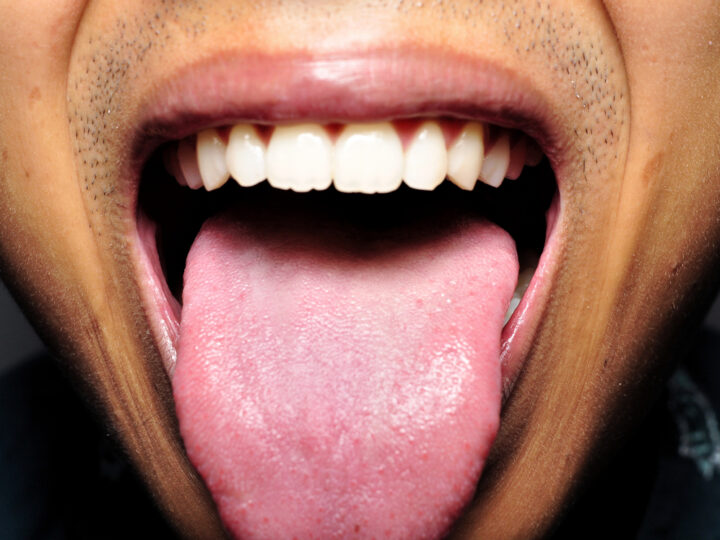LEAKY GUT SYNDROME: WHAT IT IS AND HOW TO TREAT IT WITH EASTERN MEDICINE
The Signs, The Causes, The Treatment & More

Leaky gut syndrome (LGS) is like the scapegoat of intestinal problems. Everything from stomach pain to diarrhea is blamed on a leaky gut, but western medical practitioners don’t know much about it. But more and more studies are being done on it, and the results are surprising. Apparently, leaky gut syndrome can be an early warning of autoimmune diseases and type I diabetes, and it may even cause mental health issues like anxiety and depression.
Unfortunately, there’s bad news. Right now, the US Food and Drug Administration (FDA) doesn’t have any approved treatments for leaky gut syndrome. Instead, try calling it intestinal permeability” which more doctors (and insurance companies) understand. It doesn’t mean that you’re SOL if your gut is giving you problems. There are centuries-old treatments from Eastern medicine that can help you get some relief from your LGS and hopefully heal your gut so it’s good as new.
Leaky Gut Syndrome: What It Is And How To Treat It
What Is Leaky Gut Syndrome?
 Ok, to understand leaky gut syndrome, you have to get small. We’re talking microscopic.
Ok, to understand leaky gut syndrome, you have to get small. We’re talking microscopic.
You see, your intestine’s lining is made up of millions of cells–just like everything else in your body. But in the intestine, these cells form a barrier that has small openings to let food and nutrients into your gut and, eventually, your bloodstream.
But when your gut health is less-than-great, this lining gets weaker and looser. Gaps in the barrier can show up and let bad things like bacteria and toxins into your gut. This can cause inflammation and bring along a whole host of problems, like bloating, depression, chronic fatigue, headaches, and joint problems. Our guts have 10 times as many cells as human cells, meaning that we are mostly a superstructure for organisms that live on and inside of us.
What Causes Leaky Gut Syndrome?
Remember how we said leaky gut syndrome was a bit of a mystery to Western medicine? Well, that’s because they don’t really know exactly why it happens. The jury is still out, but medical practitioners think leaky gut can be caused by any of these:
-
- Bad genes: Sometimes, people are born with a weaker intestinal barrier than most.
- Poor diet: If you eat a lot of sugar, but don’t have much fiber in your diet, that will weaken your intestine’s lining.
- Inflammatory foods: Some people will get inflamed and bloated from tomatoes, bell peppers, goji berries or ashwagandha (which are nightshades), while these are vital for others. Respect your food sensitivities, and recognize that yours are unique to you.
- Age: The older you get, the easier cells get damaged and the longer they take to heal.
- Too much alcohol: Studies show that drinking too much can inflame and damage your gut.
- Poor mental health: Stress and depression also play a role in weakening your lining and vice versa.
How To Treat Leaky Gut With Eastern Medicine
Whether you’re getting your medical advice from the East or the West, you need to know that treating leaky gut syndrome isn’t simple or straightforward. According to Dr. Alessio Fasano, director of the Center for Celiac Research and Treatment at Massachusetts General Hospital, fixing leaky gut is like fixing an old car: “You don’t know the exact problem until the mechanic lifts the hood, looks around, and tries different things — there is not a simple, direct approach to fixing the problem…We have to try different strategies to see what helps.”
Since there’s no definitive treatment for leaky gut syndrome, the best way to approach it is holistically. That means healing and strengthening your entire digestive system to help it naturally build up the intestinal lining. If you’ve been suffering for a while and would like help determining which solution is right for you, schedule a virtual consultation with one of our Eastern medicine experts.
Balance Your Diet
Since our gut is in our digestive system, it makes sense that what you eat has a big impact on your LGS. The first step to digestive health is making sure your diet is balanced, fresh, healthy and free of allergens that cause inflammation
What does balanced mean, exactly? Well, it depends who you ask. Western doctors would advise you to:
- Tone down the carbs, because eating too much sugar is bad for your intestinal barrier.
- Avoid gluten which tends to be inflammatory, even for those who are not gluten-sensitive or celiac.
- Avoid foods that you are personally sensitive to. For instance some people get inflamed and bloated from tomatoes, bell peppers, ashwagandha or goji berries because they have nightshade sensitivity while others do well with them.
- Get more fiber from veggies, beans, and fruit.
- Get probiotics from fermented foods like kimchi and miso or yogurt. But realize that all fermented foods do not have organisms that humans need.
- Swap the cocktail for a mocktail, because alcohol is harmful to your intestinal barrier.
When it comes to Traditional Chinese Medicine, the perfect diet is different for everyone, depending on their individual natures and whatever health problems they’re having. The key is to find a balance in the body and mind because that will lead to good health. Foods either are warming and contain Yang energy or they are cooling and hold Yin energy–which one you need to eat more depends on your symptoms.
Get A Move On
When it comes to digestive problems like constipation, IBS, or gassiness, going for a walk after your meal is proven to help. And on top of that, it even helps to protect your digestive system.
When it comes to Traditional Chinese Medicine, walking after eating has a long history as a digestive and health aid. In fact, there’s an old saying in China, 飯後百步走,活到九十九, which translates to “if you take 100 steps after each meal, you’ll live to be 99.” Doing some light exercise after a meal helps to relax your liver and gallbladder, helping your digestive system move food through it quicker. This should also encourage your Qi to move through your body, helping to keep everything healthy.
Chill Out
Having leaky gut syndrome might be stressing you out, but to help your digestive system it’s important to stay relaxed as much as possible. According to the Ayurvedic tradition, stress raises the level of Vata energy in our body, which is bad for digestion. Instead of eating on the go or in a busy, stressful environment, try finding a quiet, calm place to eat your meal. Ditch distractions like your phone or Netflix and eat mindfully. This should help stoke your digestive fire and keep your gut feeling good.
Not convinced enough to put down your phone during your lunch break? Well, a 2017 study found out that chronic stress can be bad for your gut because it kills good bacteria. Apparently our mental state affects our digestive system thanks to something called the “gut-brain axis.” So prioritizing your mental health is also prioritizing your digestive health!
Just because Western medicine doesn’t have a “cure” for leaky gut syndrome doesn’t mean you have to resign yourself to live with this mysterious digestive problem. When you find balance in your body and mind, you’ll find digestive health, too.
Newer
Need Some Sleep? Popping An Ambien Might Be The Wrong Call. Here’s Why.
Older
4 Secret Signs of Inflammation And How To Fix It
Comments (0)
Leave a reply
You must be logged in to post a comment.




